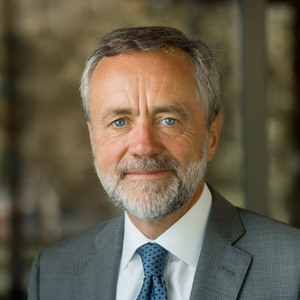I have to be honest. If you had told me nine years ago, when the moving truck was settling our family into California, that the state legislature would be proposing bills in 2016 denying us the ability to live within our cherished convictions, I may have told the truck driver to turn around. There have been days this past year when I’ve said, “This is not what I signed up for.”
But this is what I signed up for. I signed up knowing an education grounded in a Christian worldview may be misunderstood by the world, but it has never been needed more by the world.
I’ve had to remind myself of this frequently in 2016, as Biola and our fellow faith-based colleges and universities in California faced state legislation, Senate Bill 1146 (read more about it on page 7), that was poised to remove our ability to have policies and student codes of conduct in accordance with our tenets. Many of us college presidents had little hope the bill could be favorably amended, though we worked diligently for months toward that end with the help of our independent college advocacy association in California.
I was meeting with state legislators when the positive news broke on Aug. 9 that lawmakers amended SB 1146 to remove its contested portions. I was naturally quite relieved. It felt like we had some much-needed breathing room. Though we expect bills like this to be proposed again in the near future, the 11th-hour changes felt like an encouraging sign and an important lesson. And regarding lessons, I’ve learned a few in these recent months:
1. We must tell the story of the good we do. One of the reasons why Christian higher education has been falsely typecast in Sacramento is because we haven’t done a great job telling our story. We have let the false narrative take hold, that we are an anti-intellectual bastion of bigotry that allows religion to be a legal loophole to discriminate. We are not this. We must begin to reverse this impression by articulating the good we offer to society. We must be honest about our care for all our students as well as humble about where we have room for improvement.
2. We must not assume all who oppose us are unreasonable. I believe reasonable people — regardless of where they are on the political spectrum — will listen to reasonable ideas. There are those on the left and the right who are not reasonable and unwilling to listen because fear or anger or the vitriol of special-interest groups has deafened them. I believe we can make better progress through conversations with lawmakers the next time a bill like SB 1146 is considered, beginning conversations with civility and humility, leading with grace and being willing to learn.
3. We must not be ashamed of our Christian mission. Our biblical foundation is the heart of who we are, and it is what makes us distinct. Our firm center is the truth and trustworthiness of God’s Word. Our calling is to relentlessly love this world as Christ has loved us. As cultural pressure heightens and some institutions abandon long-held Christian beliefs, Biola must be a ballast.
In these contested issues, I believe Christians do best when they lead with kindness and not bluster. The day the bill was amended in our favor, I had a full day of meetings in Sacramento, trying to tell lawmakers a different story about Biola. At the end of the day, I met with one legislator passionately opposed to what Biola stands for on human sexuality. As we met, I invited him to our campus to join me for a meal and to meet our students. I told him that Biola as a Christian community is also a learning community, that we want to make sure our campus is a place where all students are safe and flourish. I listened to his questions and answered them honestly.
I didn’t change his mind, but I believe I changed his perspective. I hope he began to see some Jesus character in me and not some religious caricature of me. He told me he would be happy to come to Biola.
Relationships long overdue are beginning to be forged. As we move forward in a culture certain to present more legislative challenges, I believe this is a good place to start.
Barry H. Corey is the eighth president of ∫⁄›Æ ”∆µ. Visit his office online at biola.edu/president, on Facebook at and on Twitter at .
 ∫⁄›Æ ”∆µ
∫⁄›Æ ”∆µ
.jpg)

